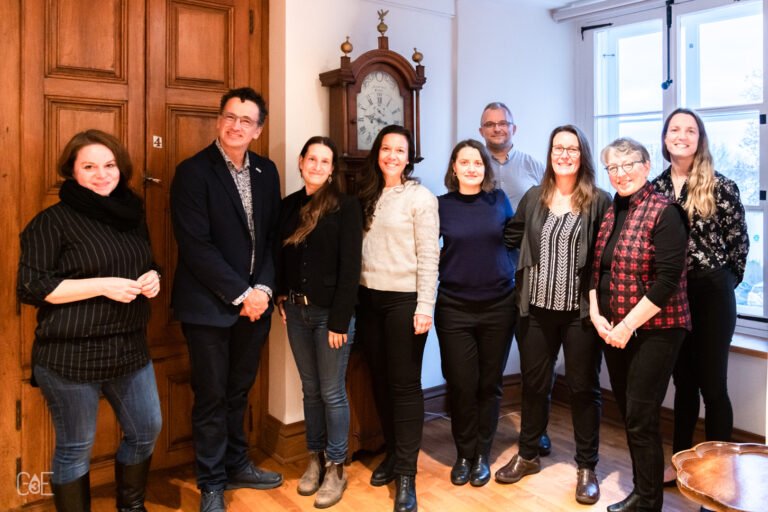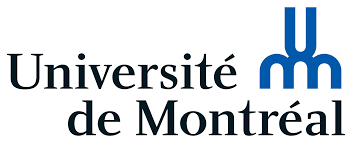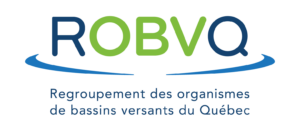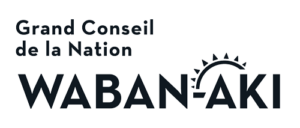During the November forum, the storyteller, museologist and anthropologist Nicole O’Bomsawin joined us from the Waban-Aki Nation. She told an Algonquian story about how we all share life-giving water and need to protect it together. Beyond Nicole’s voice, the forum’s attendees hope for more opportunities for Indigenous partners to participate at a future convening, and recognize the need to find funding to make this a reality.
In November 2022, I attended a Participatory Water Science Forum in Quebec (in French). This was the first francophone gathering designed for community & environmental organizations, water networks, government stakeholders and research groups working on participatory water science initiatives. The forum brought collaborators together to:
- create a sense of belonging & identify key francophone leaders in this field;
- recognize the importance of participatory water science in advancing water conservation alongside Indigenous ways of knowing;
- create an action plan to coordinate future efforts.
What is participatory science? Take a look at the many terms used to describe it!

Photo credits (this photo and header): Mathilde Crépin, G3E, © 2022
Keep your eyes peeled for the forum’s upcoming report on future recommendations. In the meantime, here’s a window into the work these groups are doing in Quebec so we can learn from each other across the country!

Adopt A Lake (University of Montreal) involves groups of participants monitoring more than 80 lakes for blue-green algae. Researchers analyze and publish the data and communities learn about the health of their lakes.
Great Lakes DataStream (The Gordon Foundation) is an open access hub for sharing water data in the Great Lakes-St Lawrence basin. It’s the newest addition to a growing pan-Canadian platform welcoming data contributors and users of all types.

The “Groupe d’éducation et d’écosurveillance de l’eau” is a Quebec nonprofit with an online database and two participatory science programs for monitoring watercourses, including:
- Adopt a River, which allows participants to determine the overall health of a watercourse. Quebec’s watershed organizations often coordinate the program regionally, with significant participation from Indigenous communities, schools and francophones outside the province.
- SurVol Benthos, which allows participants to use benthic macroinvertebrates (small bottom dwelling bugs and other animals) as an indicator to monitor streams. Quebec’s watershed organizations, colleges and its park system collaborate to carry out this program (both links in French).

iTrack DNA is a pan-Canadian project with significant leadership in Quebec. It aims to collect and track environmental DNA (genetic material shed from organisms into the environment) through water samples to monitor priority animals. Work is ongoing to create easy-to-use test kits and integrate Indigenous knowledge into the project.

The “Réseau de surveillance volontaire des lacs” (in French) is the government of Quebec’s main lake monitoring network, with a special emphasis on documenting eutrophication, or the aging of water bodies as nutrients increase. It involves 772 lakes and over 1400 participants, including community groups, watershed organizations, universities, municipalities, parks and individuals.
Water Rangers is a Canada-wide social enterprise with partners in Quebec, including University of Montreal, Les Scientifines (a science, technology, engineering and math based program for girls), and Quebec’s watershed organizations. Water Rangers offers water quality test kits and an open data platform.

The 40 Watershed Organizations are mandated by the government of Quebec and many offer participatory water science programs in collaboration with the initiatives above. You can find more information about partnering with them in this webinar recording (links in French).
During the November forum, the storyteller, museologist and anthropologist Nicole O’Bomsawin joined us from the Waban-Aki Nation. She told an Algonquian story about how we all share life-giving water and need to protect it together. Beyond Nicole’s voice, the forum’s attendees hope for more opportunities for Indigenous partners to participate at a future convening, and recognize the need to find funding to make this a reality.

I’ll keep you posted once the final report from the November forum is published. Francophone Network members are excited to share their recommendations for participatory water science within Quebec and with the broader community across the country. Stay tuned to hear about these emerging opportunities for collaboration!